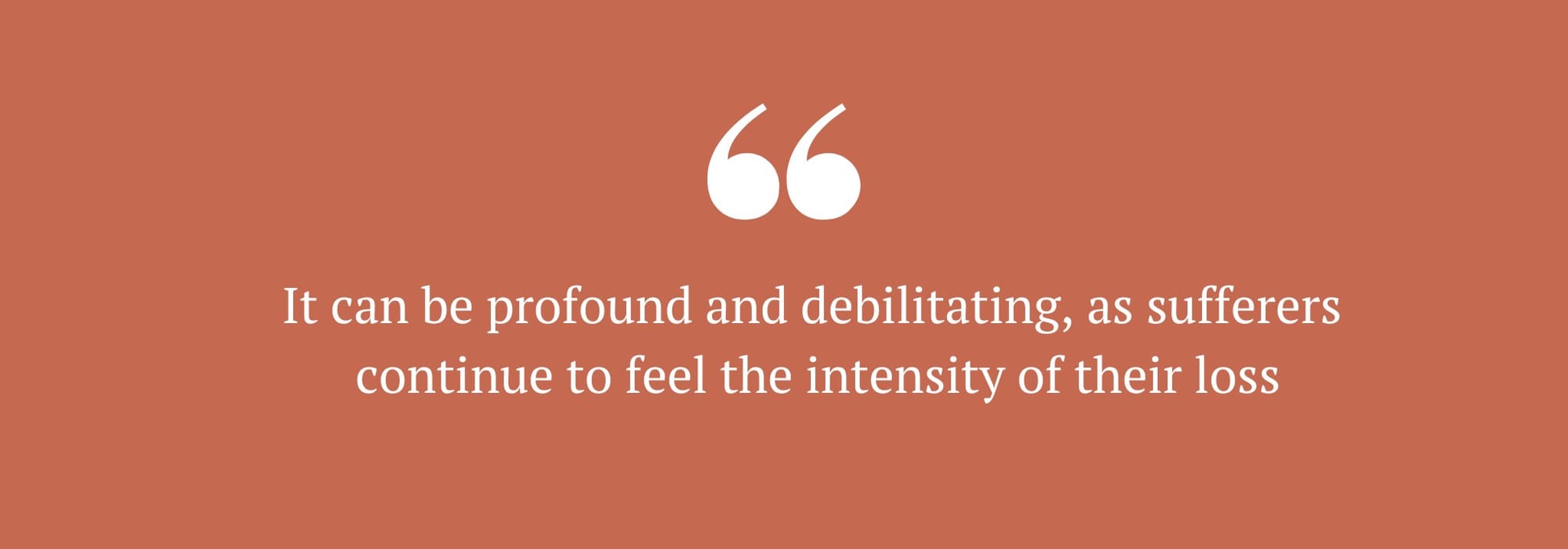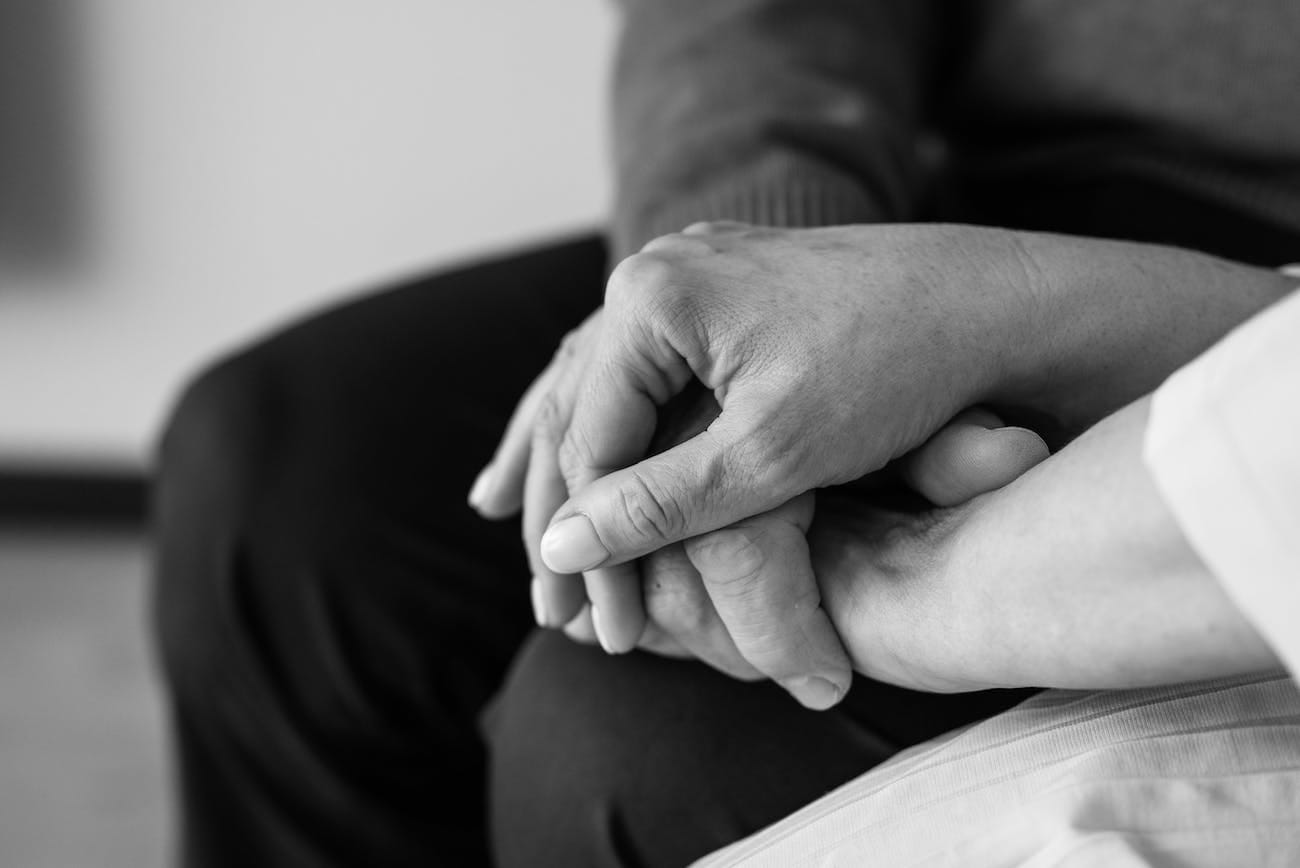
The condition peaked in lockdown, but what is it, who does it tend to affect, and what does the pathway forward look like?
There are few human experiences that can truly claim to be universal, but grief tops the list. No matter who we are, what our background is, where we come from, what we do, or how we live our lives, grief will touch us at some point. It’s a completely natural experience and reaction that many of us learn to navigate in our own ways with time. But, sometimes, that experience can be a bit more complicated than usual, to the point where it can become debilitating.
In March 2022, prolonged grief disorder (PGD) was the latest disorder to be added to the Diagnostic and Statistical Manual of Mental Disorders, following studies over decades that found that many people were experiencing persistent difficulties with grieving, which exceeded social, cultural, or religious expectations.
While grief is a natural response to bereavement, usually, the symptoms do ease over time. But when it comes to prolonged grief disorder, the persistent grief affects everyday functioning, and does not ease the way that typical grief does.
According to the American Psychiatric Association, symptoms of prolonged grief disorder may include:
- Identity disruption (such as feeling as though part of oneself has died).
- A marked sense of disbelief about the death.
- Avoidance of reminders that the person is dead.
- Intense emotional pain (such as anger, bitterness, and sorrow) related to the death.
- Difficulty with reintegration (such as problems engaging with friends, pursuing interests, and planning for the future).
- Emotional numbness (absence or marked reduction of emotional experience).
- Feeling that life is meaningless.
- Intense loneliness (feeling alone or detached from others).
But what causes PGD to begin with? Someone who knows a lot about it is psychotherapist and counsellor Dan Perrin, who focused on the role of the therapist in supporting clients experiencing PGD for his dissertation work at the Sherwood Psychotherapy Institute, and continues to work with those experiencing loss.
“During my work at the Laura Centre in Leicester, working with individuals suffering from child or sibling loss, I have encountered prolonged grief disorder, also known as ‘complex grief’, on many occasions,” Dan reflects. “This has presented in clients from diverse cultural backgrounds and in a variety of age groups – and has commonly occurred in losses involving traumatic or violent events.

“It can be profound and debilitating, as sufferers continue to feel the intensity of their loss well beyond what would be deemed as a normal grieving period. It often occurs in bereavement involving unnatural death, as the person struggles to make sense of what has happened, becoming ‘stuck’ in the grief process. This can lead to feelings of overwhelm or being ‘trapped’ in their grieving, leading to an inability to move on with their lives.”
According to 2021 research in American Psychiatric Publishing, it’s estimated that 7–10% of bereaved adults will experience symptoms of PGD. The research also highlights risk factors for developing PGD, which include a history of depression and bipolar disorder. Caregivers – particularly if they were a partner caring for the loved one they lost – are also at greater risk. Additionally, PDG can occur alongside other mental disorders such as PTSD, anxiety, and depression. And it’s estimated that 80% of people with PGD experience long-term poor sleep.
While discussion around PGD is fairly recent, it is, unfortunately, timely. Following the Covid-19 pandemic, researchers from Cardiff University’s Marie Curie Palliative Care Research Centre and the University of Bristol found that there was a significant increase in the number of people experiencing PGD. Before the pandemic, in the UK it was estimated that 10% of bereaved people experienced prolonged grief disorder. But, during the pandemic, the study found that this rose to more than 35% when the researchers followed up with study participants 13 months after their bereavement, and 29% 25 months after the bereavement.
When considering why this might have happened, the researchers pointed to a number of factors, including unexpected deaths, social isolation and loneliness in early bereavement, and a lack of social support during this time.
It’s hoped that the research will aid in the understanding of mass bereavement events, and what this then means for bereavement policy, provision, and practice in future. For now, though, support is available for those who need it.
“PGD sufferers may hold on to intense anger, sorrow, or guilt connected to their loss. Intrusive thoughts may arise, leaving the person feeling isolated, anxious, or suicidal,” Dan explains, when considering the signs that someone should seek support. “This often affects eating, sleeping patterns, and general wellbeing, and can lead to an inherent sense of being consumed by their loss. These signs may occur many years after a bereavement occurred, and can be indicators that professional help is needed.”

He points to recognised organisations such as CRUSE, which provides education and support on its site and through one-to-one counselling sessions.
“Therapy offers a confidential, safe space to process their loss, and promote healthy routines and coping strategies valuing the uniqueness of the individual’s grieving process,” says Dan. “Embracing the spirit of the deceased in therapeutic work can also help to develop ‘continuing bonds’, and allow ongoing connections with loved ones to be integrated into our lives.
“Group work following a loss can provide a shared experience with others suffering similarly. This work can also challenge the sense of loneliness often associated with PGD, and offer long-term peer support networks.”
It’s important not to pathologise all grief. There is, after all, nothing wrong with going through this natural human experience. But, when the balance is tipped, and the impact of loss is having a long-term impact that creates obstacles to everyday life, it’s a sign support is needed. And as discussion around PGD grows, if it’s all sounding familiar, then one thing’s for sure: you’re not alone.

